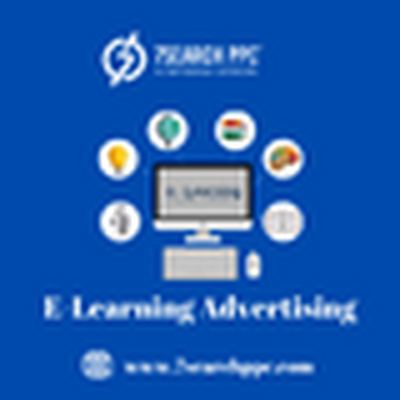The landscape of Online Education Advertising has undergone a significant transformation over the past decade, and much of this shift can be attributed to the rise of online education. The demand for online education has soared with countless platforms offering a wide range of courses, degrees, and certifications. As a result, educational institutions and e-learning providers have turned to online advertising to reach their target audiences.
The Rise of Online Education
Online education has become a mainstream option for learners of all ages. Whether it’s for upskilling, career changes, or pursuing higher education, the flexibility and accessibility of online courses have attracted millions of students globally. This surge in online learning has driven the need for effective advertising strategies to connect with potential students.
What is Online Education Advertising?
Online education advertising refers to using digital marketing techniques to promote educational services and programs. This can include everything from paid search ads to content marketing and social media campaigns. The goal is to reach individuals interested in furthering their education and guide them toward enrolling in specific courses or programs.
The Role of PPC in Online Education
Pay-per-click (PPC) advertising is a critical component of online education advertising. Platforms like 7Search PPC allow educational institutions to bid on keywords related to their offerings. When potential students search for these terms, the ads appear, driving targeted traffic to the institutions’ websites. PPC ads are particularly effective because they allow advertisers to control their budgets and only pay when a user clicks on their ad.
The Power of Social Media in Advertising
Social media has revolutionized the way businesses, including educational institutions, approach advertising. With billions of active users, social media platforms offer unparalleled reach and engagement opportunities.
How Social Media Transforms Advertising
Social media platforms have evolved from simple networking sites into powerful advertising tools. They provide advanced targeting options that allow advertisers to reach specific demographics based on interests, behaviors, and even previous interactions with their brand. This precision makes social media an ideal platform for online education advertising.
The Popularity of Social Media Platforms for Education Ads
Different social media platforms cater to various audience segments, making it crucial to choose the right platform for your education ad campaigns.
Facebook and Instagram
Facebook and Instagram are among the most popular platforms for online education advertising. Facebook’s extensive user base and advanced targeting options allow advertisers to reach potential students effectively. Instagram, with its visually appealing format, is particularly effective for promoting courses that benefit from visual content, such as design or photography programs.
LinkedIn
LinkedIn is the go-to platform for professional networking, making it ideal for advertising higher education programs, especially those targeting working professionals. LinkedIn ads are perfect for promoting executive education, MBA programs, and professional certifications.
YouTube
YouTube’s vast library of video content provides an excellent platform for educational institutions to showcase course previews, testimonials, and more. Video ads on YouTube can be highly engaging and offer a great way to connect with potential students on a deeper level.
Targeting the Right Audience Through Social Media
The success of online education advertising hinges on targeting the right audience. Social media platforms offer tools like custom audiences and lookalike audiences, which help advertisers reach users who are more likely to be interested in their educational offerings. By leveraging these tools, institutions can optimize their ad spend and increase conversion rates.
Social Media Strategies for Online Education Advertising
To stand out in the crowded online education market, it’s essential to implement effective social media strategies.
Creating Engaging Content
Content is king in social media advertising. The content you share should resonate with your target audience and encourage them to take action.
Video Content and Webinars
Video content, including webinars, is particularly powerful in online education advertising. Videos allow potential students to see and hear what a course offers, making it more tangible. Webinars can also serve as a preview of the learning experience, giving students a taste of what to expect.
Interactive Posts and Quizzes
Interactive content like quizzes and polls can engage users and make them more likely to interact with your ads. For example, a quiz about career goals can guide users to the right course or program, increasing the likelihood of enrollment.
Utilizing Influencer Marketing
Influencer marketing has become a popular strategy for online education advertising. By partnering with influencers who align with your brand, you can reach a broader audience. Influencers can share their experiences with your courses, provide testimonials, or even create sponsored content that resonates with their followers.
Retargeting and Custom Audiences
Retargeting allows you to reach users who have previously interacted with your website or social media profiles. By reminding them of your offerings, you can encourage them to complete their enrollment. Custom audiences, on the other hand, enable you to create highly targeted ads for specific user segments, such as those who have shown interest in similar courses.
Challenges and Considerations in Social Media Advertising
While social media offers numerous advantages, it’s not without its challenges.
Managing Advertising Budgets
Budget management is crucial in social media advertising. With so many options available, it’s easy to overspend. It’s essential to set clear objectives and allocate your budget accordingly. Monitoring ad performance regularly will help you make adjustments and optimize your campaigns.
Handling Platform Algorithms
Social media platforms frequently update their algorithms, which can impact the visibility of your ads. Staying informed about these changes and adjusting your strategy accordingly is key to maintaining the effectiveness of your education campaigns.
Navigating Privacy Concerns
Privacy concerns have become increasingly important in digital advertising. Advertisers must be transparent about data usage and ensure they comply with regulations like the GDPR. Respecting user privacy helps build trust and can lead to better ad performance.
Measuring the Success of Social Media Campaigns
To ensure your social media campaigns are effective, it’s essential to measure their success using the right metrics.
Key Performance Indicators (KPIs)
KPIs are critical for assessing the performance of your ad campaigns.
Click-Through Rates (CTR)
The CTR is a measure of how many users clicked on your ad compared to how many saw it. A high CTR indicates that your ad content is relevant and engaging.
Conversion Rates
Conversion rates measure the percentage of users who took the desired action, such as enrolling in a course, after clicking on your ad. This metric is crucial for evaluating the overall effectiveness of your campaign.
Tools for Tracking and Analyzing Performance
There are numerous tools available to help track and analyze the performance of your social media campaigns. Platforms like Google Analytics, Facebook Ads Manager, and LinkedIn Campaign Manager provide detailed insights into how your ads are performing and where you can improve.
Case Studies: Successful Education Ad Campaigns
Examining successful ad campaigns can provide valuable insights and inspiration.
Example 1: A Major Online University
A major online university used a combination of Facebook and YouTube ads to promote its MBA program. By creating engaging video content and targeting working professionals, the university achieved a significant increase in enrollment.
Example 2: An EdTech Startup
An EdTech startup leveraged LinkedIn and influencer marketing to promote its coding boot camp. By focusing on professionals looking to change careers, the startup saw a high conversion rate and rapid growth.
Future Trends in Online Education Advertising
The world of online education advertising is constantly evolving. Staying ahead of trends is essential for success.
The Growth of AI and Automation
Artificial Intelligence (AI) and automation are transforming digital advertising. From chatbots that engage with potential students to AI-driven ad targeting, these technologies are making campaigns more efficient and effective.
Personalization in Education Ads
Personalization is becoming increasingly important in online education advertising. Ads tailored to the individual’s needs and interests are more likely to resonate and lead to conversions.
The Role of Emerging Social Media Platforms
New social media platforms are constantly emerging, and they can offer untapped opportunities for education advertising. Staying open to experimenting with these platforms can give you a competitive edge.
Conclusion
Social media has become an indispensable tool for online education advertising. By leveraging the power of platforms like Facebook, Instagram, LinkedIn, and YouTube, educational institutions can effectively reach and engage with their target audiences. However, it’s essential to stay informed about the latest trends, challenges, and strategies to ensure your education ad campaigns remain effective in this ever-changing landscape.
FAQs
What are the best social media platforms for online education advertising?
Ans: The best platforms include Facebook, Instagram, LinkedIn, and YouTube, depending on your target audience and the type of content you want to promote.
How can I measure the success of my education ad campaigns?
Ans: Success can be measured using KPIs like click-through rates (CTR) and conversion rates, as well as tools like Google Analytics and Facebook Ads Manager.
What are some common challenges in social media advertising?
Ans: Common challenges include managing advertising budgets, handling platform algorithm changes, and navigating privacy concerns.
How important is video content in online education advertising?
Ans: Video content is crucial as it engages users more effectively and can convey complex information about courses in an easily digestible format.
What future trends should I watch out for in online education advertising?
Ans: Trends to watch include the growth of AI and automation, increased personalization in ads, and the emergence of new social media platforms.



